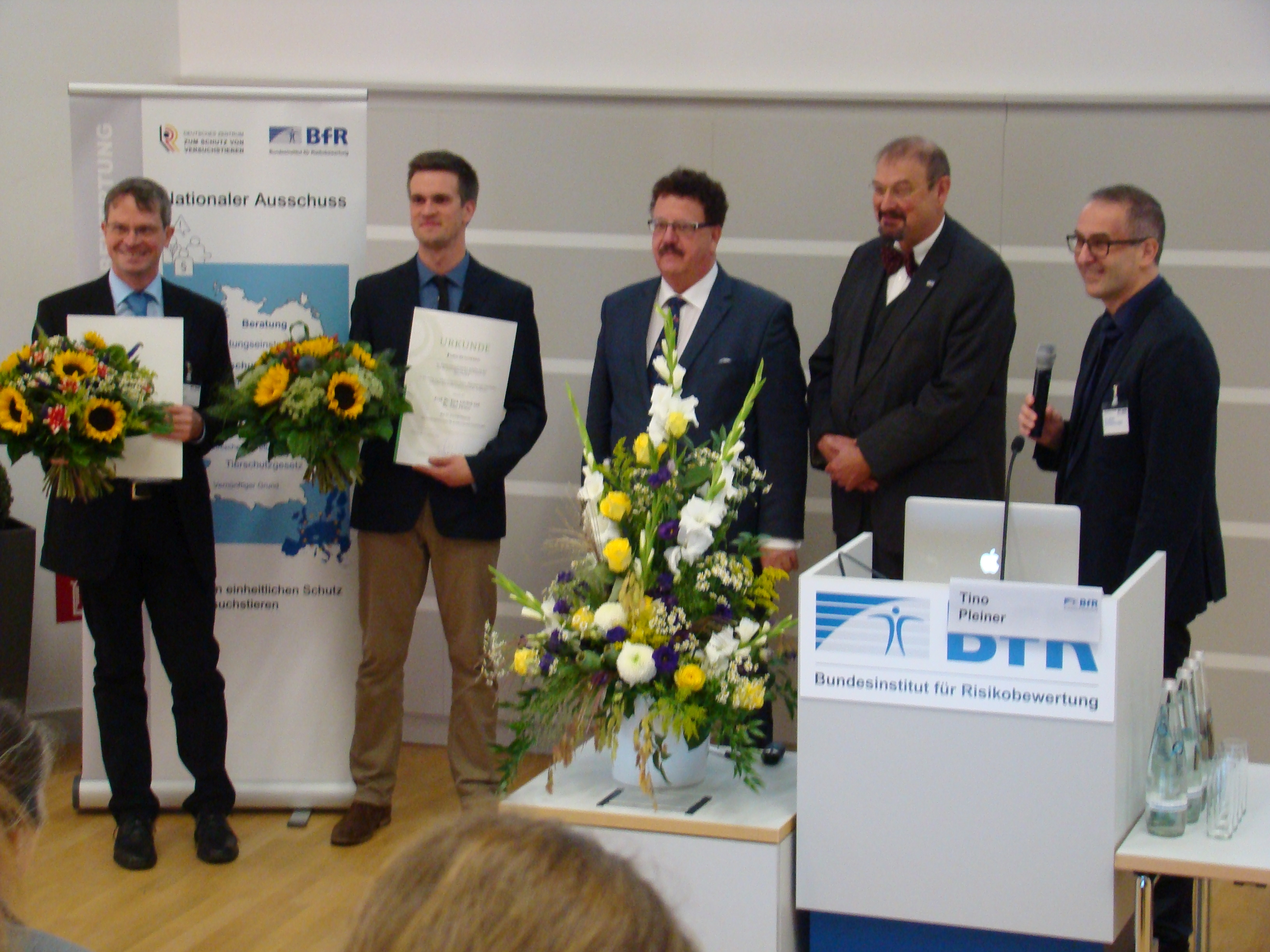BMEL animal welfare research prize winner (from left to right): Prof. Dr. Dirk Görlich, Dr. Tino Pleiner, Hans-Joachim Fuchtel, (State Secretary at the Federal Ministry of Food and Agriculture), Prof. Dr. Dr. Andreas Hensel (President of the Federal Institute of Risk Assessment) and Prof. Dr. Gilbert Schönfelder, Head of the Experimental Toxicology Department and ZEBET at the Federal Institute of Risk Assessment.
Photo: C. Hohensee
Nanobodies are fragments of particularly simple miniature antibodies from camellias such as alpacas. The phage display technique is used to select the desired nanobody type from the large number of variants. This target variant is then replicated in bacteria.
Although the researchers obtain the primary antibodies in animals, the secondary antibodies, for which tens of thousands of goats, sheep or donkeys have been used so far, can be replaced. The secondary mini-antibodies (nanobodies) are linked with a fluorescent dye and bind to the primary antibody as a counterpart, quasi as a colour reagent for visualising the smallest structures in cells. In particular, the novel high-resolution fluorescence microscopy can achieve far better results than conventional methods.
The prize is worth 25,000 euros.
Further information. =2191
https://www.mpg.de/12340367/1010-bich-059424-tierschutzforschungspreis-fuer-goettinger-max-planck-forscher?c=2191
https://www.tierrechte.de/2018/10/10/11-oktober-2018-tierschutzforschungspreis-antikoerperproduktion-mit-bakterien-statt-im-tier/





 Dr. rer. nat.
Dr. rer. nat. Menschen für Tierrechte - Tierversuchsgegner Rheinland-Pfalz e.V.
Menschen für Tierrechte - Tierversuchsgegner Rheinland-Pfalz e.V.